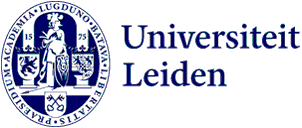
Trying to fight global warming with philosophy
In her inaugural lecture Susanna Lindberg will ask how philosophy should respond to global warming. She does not simply aim to apply existing philosophical tools to the reality of global warming but asks if and how philosophy itself should change to be up to the emerging situation.
Lindberg holds the new chair in Continental Philosophy and studies philosophy originally written in continental Europe. ‘Like all philosophy, continental philosophy loves abstract questions such as “What is being?”, “What is truth?” and “What is art?”’ But continental philosophy is also a ‘metaphysics of the present’ that wants to tackle problems that arise in our everyday lives. ‘Today, these include, for example, questions concerning our technological condition, the ecological situation and the relations between humans and non-humans’, says Lindberg.
Planetary sphere
She already has various ideas on how to adapt her field. As a philosopher, Lindberg does not invent a machine that can remove CO2 from the air, but concepts. The concept of world, for example, a classical concept in continental philosophy that she believes must be entirely rethought if it should cover the entire planetary sphere. ‘We inhabit our familiar home world, but our relationship to planetary space is something quite different. We need to understand this difference to invent better ways of dealing with planetary problems such as global warming.’
‘Maybe there are ways to turn feelings of powerlessness into a new kind of power.’
Powerlessness in the face of planetary problems, such as global warming, can cause anxiety and depression (e.g., climate anxiety). ‘I do not think we should flee this anxiety but that we should see what it consists of and recognise that it is partly justified. But we should not be afraid of fear and anxiety. Maybe there are ways to turn feelings of powerlessness into a new kind of power.’
New direction
Lindberg is proud to be the first in the Netherlands to hold the chair in Continental Philosophy and is working on the concept of global warming, among other things. This is a new direction that she has taken. Her most recent book, From Technological Humanity to Bio-Technical Existence, which was published this year, deals with technology and humanity. How are technologies such as computers, telephones and artificial intelligence changing our understanding of what it is to be human?
As interesting as she finds humanity, Lindberg now wants to research the world in which humans are found. ‘The world is a technological place, not just nature. It’s a big, complicated world and I want to make it easier to understand.’
Susanna Lindberg will give her inaugural lecture on 20 November from 16.00 to 17.00. You can still sign up to attend. The lecture will also be livestreamed.
Text: Dagmar Aarts
Photo: Unsplash
